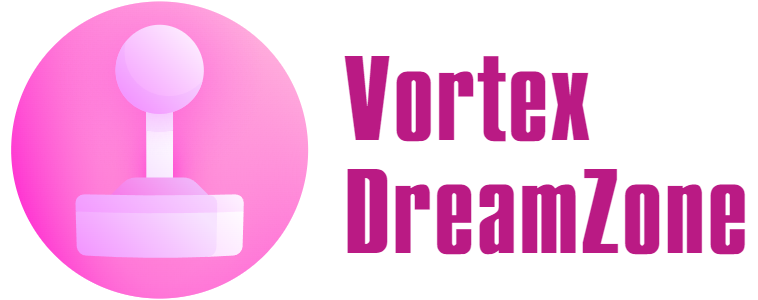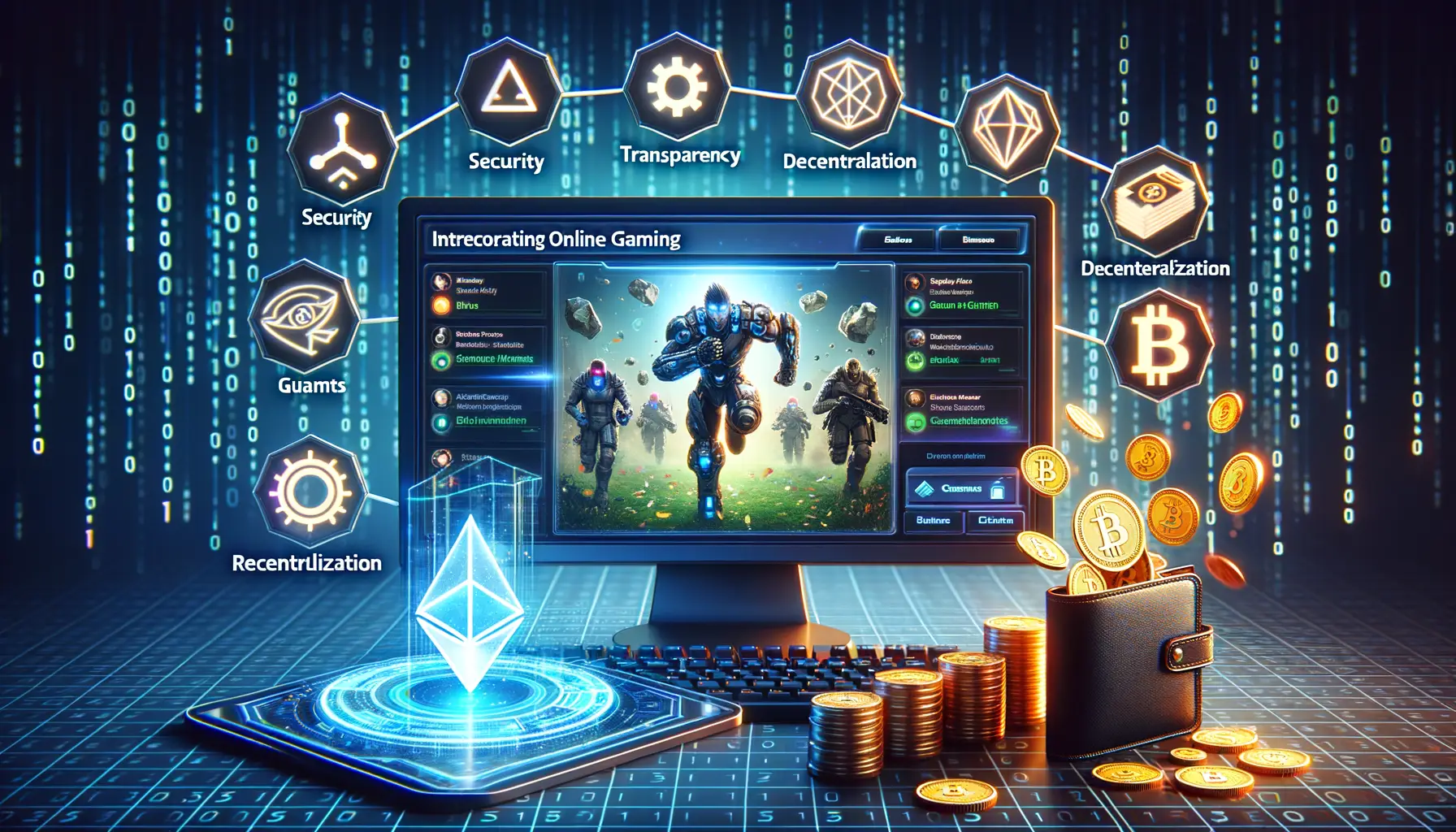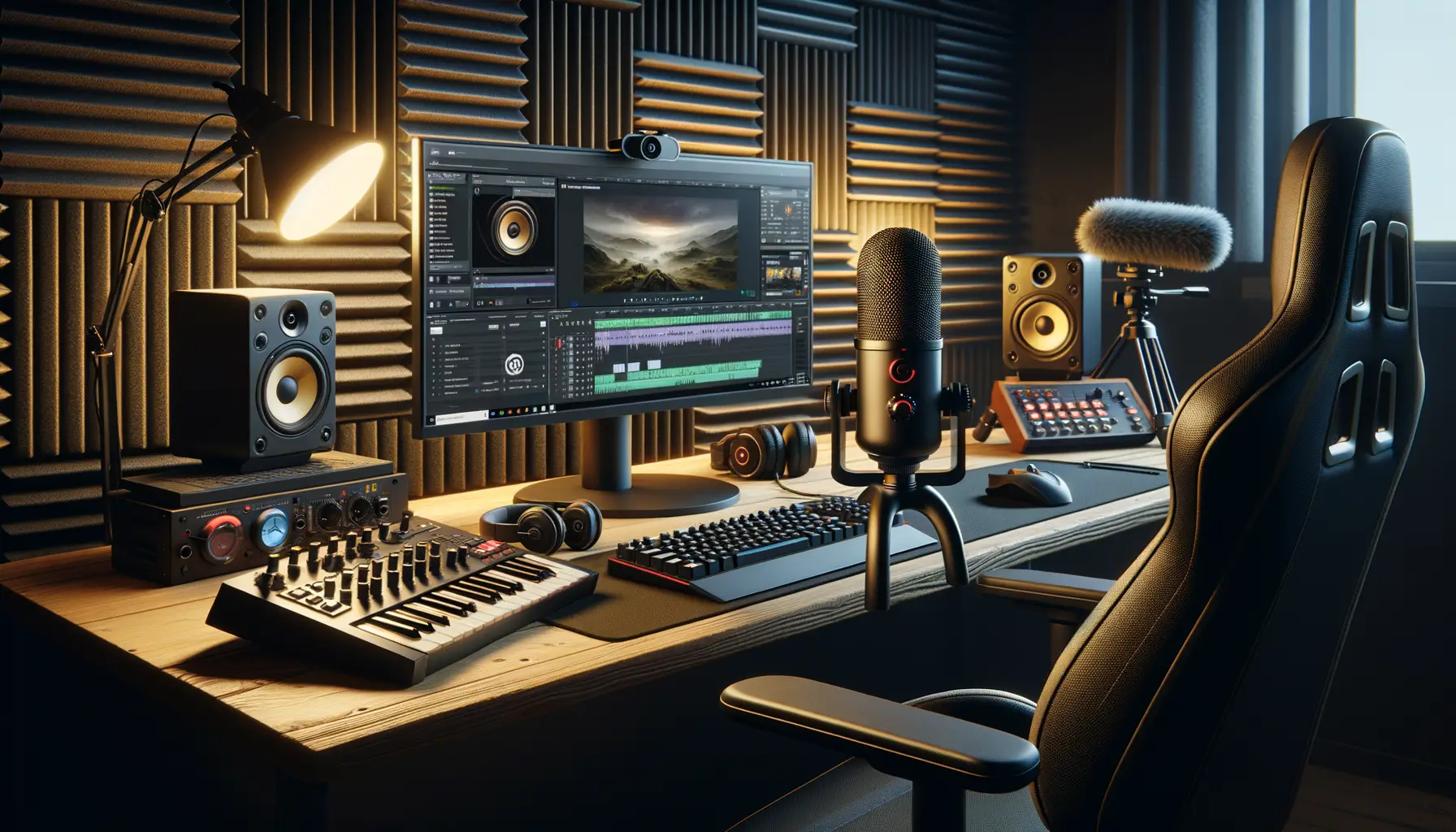Understanding the Gaming Industry and Its Opportunities
Dive Into a World of Creativity, Technology, and Endless Possibilities
The gaming industry isn’t just about playing games—it’s an electrifying fusion of art, technology, and storytelling. Picture a universe where imagination knows no bounds, where pixelated dreams and cutting-edge code collide to create experiences that make your heart pound and your palms sweat. That’s the world you could be working in.
What makes this industry so special? For starters, it’s colossal. With the global gaming market expected to hit $300 billion by 2025, opportunities abound whether you’re passionate about shaping virtual worlds, crafting epic soundtracks, or analyzing player data to predict the next big trend.
Did you know the gaming sector also has room for almost every skillset? You don’t have to be a coding wizard to contribute. Here are some possibilities:
- Creative minds: Concept artists, narrative designers, voice actors.
- Tech-savvy pros: Game developers, software engineers, AI specialists.
- Strategists: Marketing experts, project managers, business analysts.
Whether you’re drawn to AAA blockbuster games or indie masterpieces with cult followings, the industry thrives on variety—and that’s where its magic lies.
Required Skills and Education for a Gaming Career
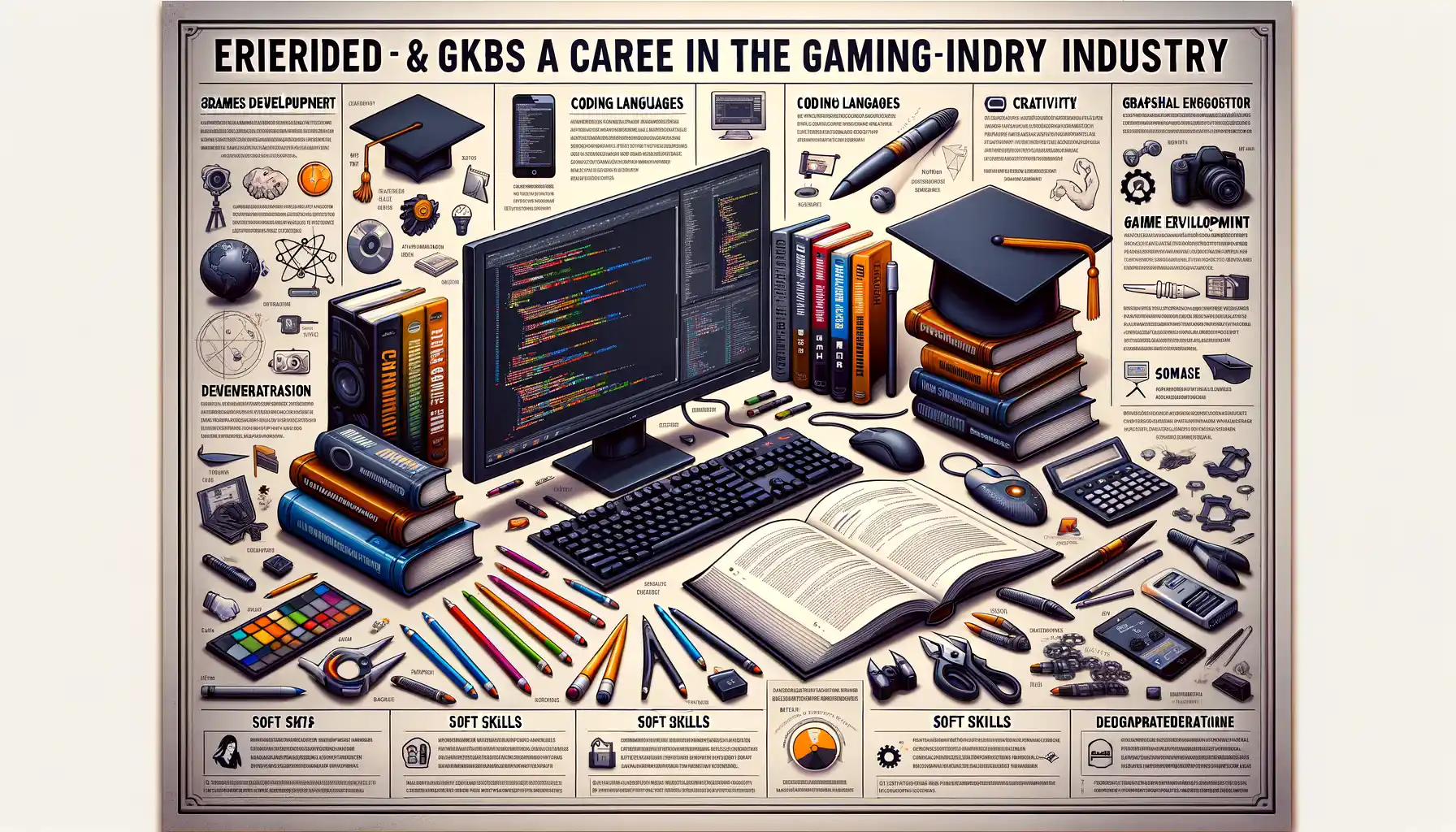
Sharpening Your Toolkit: The Skills You Need
To thrive in the dynamic universe of gaming, you’ll need more than a love for video games. Think of it as assembling your ultimate weapon—each skill adds to your power. Creativity is king here. Whether you’re crafting mesmerizing worlds as a designer or fine-tuning mechanics as a developer, thinking outside the box is non-negotiable.
However, don’t underestimate the power of solid technical chops. Can you speak the language of code? Proficiency in tools like Unity, Unreal Engine, or programming languages like C++ and Python opens up boundless opportunities. And let’s not forget teamwork. Gaming projects are rarely solo missions; collaboration and communication are the glue holding those epic ideas together.
- Problem-solving: Every game has bugs; your creativity can make fixes elegant.
- Storytelling: Games are about experiences. A great narrative draws players into your world.
What About Education?
Here’s the deal: while a formal degree in fields like Game Design, Computer Science, or Animation often impresses employers, it isn’t the only path. Self-taught developers with jaw-dropping portfolios regularly turn heads. Online platforms like Coursera or Udemy allow you to level up your skills at your pace. Passion speaks louder than diplomas in this industry—so start creating, experimenting, and showing off your work!
Specializations and Career Paths in the Gaming Sector
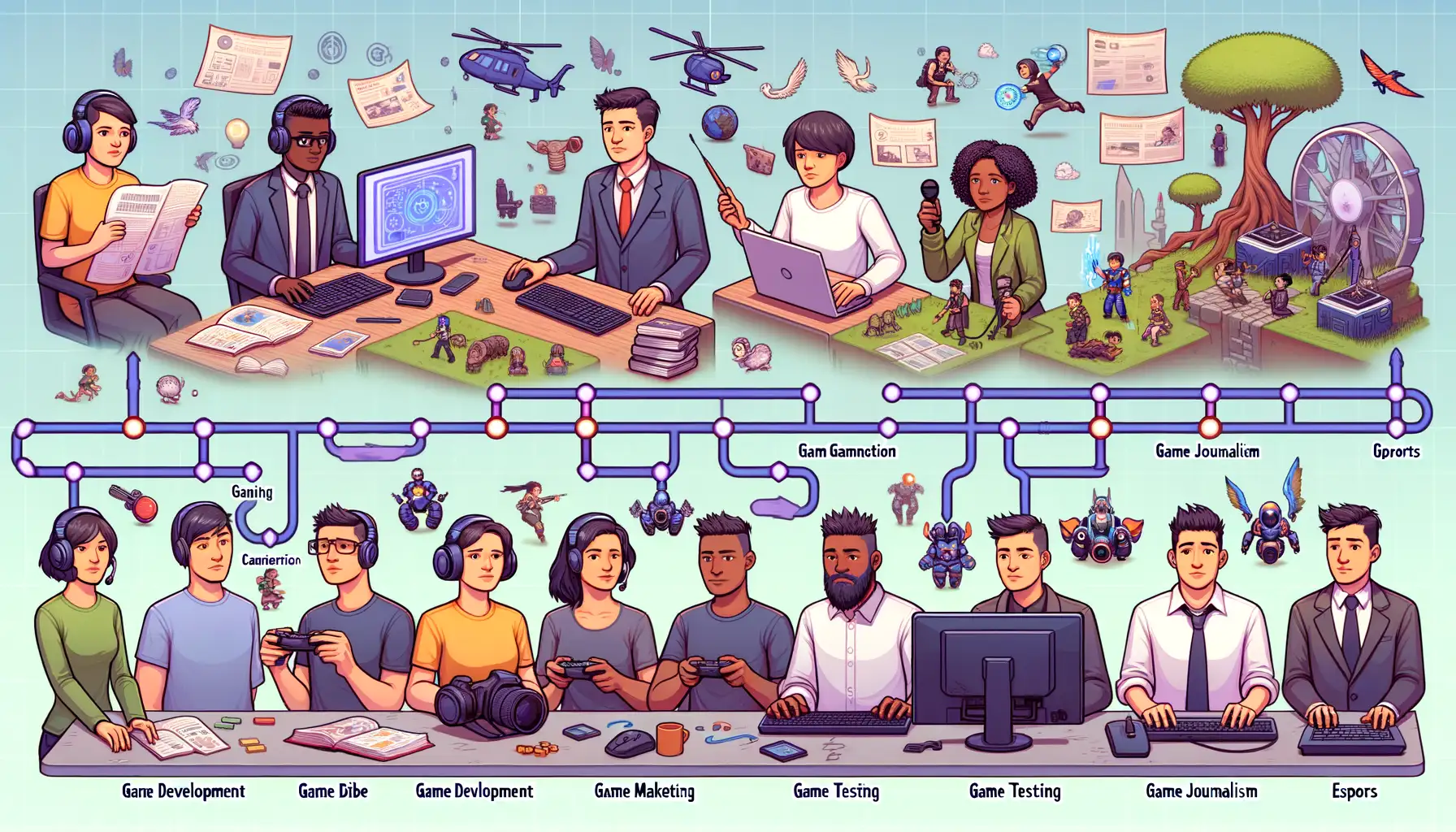
Explore the Roles That Bring Games to Life
The gaming industry is a sprawling universe, brimming with diverse and specialized career paths. It’s not just about playing games; it’s about crafting adventures, building worlds, and creating unforgettable experiences. Picture this: every time you load your favorite RPG or blast enemies in a first-person shooter, there’s a team of passionate professionals behind the scenes shaping that magic.
From game designers who dream up intricate storylines and challenges, to programmers who bring those ideas to life through code, everyone plays their part. Artists breathe life into characters and landscapes, while sound designers create the eerie creaks in haunted mansions or the gut-punching explosions of an epic battle.
- Game Designers: Masters of imagination and gameplay mechanics.
- Artists & Animators: Sculptors of awe-inspiring visuals.
- Audio Engineers: Architects of immersive soundscapes.
- Writers: Storytellers who weave compelling narratives.
- QA Testers: The guardians ensuring a flawless player experience.
Finding Your Niche
Your unique passions will shape your path. Love coding? Programming could be your playground. An eye for detail and color? Visual design might call your name. Even analytical minds find a home here as game analysts, dissecting player behavior to refine gaming strategies.
The truth is, the gaming sector thrives on collaboration—there’s no “one size fits all.” Which role will ignite your creativity? Dive in and let your skills carve the way!
Tips and Strategies for Breaking into the Industry

Carve Your Path with Bold Actions
Breaking into the gaming industry is like embarking on an epic quest—thrilling, challenging, and wildly unpredictable. But guess what? Every legend starts with a single step. Begin by immersing yourself in the world of games, not just as a player but as a creator-in-the-making. Study your favorite games. What makes them tick? Why do they captivate players? Ask questions and let curiosity lead you.
Opportunities often hide in the shadows, so don’t wait for an invitation—knock on doors, virtually and literally! Showcase your passion by contributing mods to existing games, participating in game jams, or even collaborating on small indie projects. These experiences won’t just bulk up your resume; they’ll make you unforgettable.
- Tighten up your elevator pitch: When networking, be ready to explain who you are and what you bring to the table—in 30 seconds flat!
- Follow the breadcrumbs of industry leaders: Dive into their interviews, blogs, and social media posts to learn their twists and turns.
Remember, this isn’t just about landing a job—it’s about planting roots in a field you love. Stay relentless, stay passionate, and soon, the industry will take notice.
Building a Strong Portfolio and Networking

Showcasing Your Creativity: Crafting a Portfolio That Wows
Your portfolio is more than a collection of projects—it’s your creative DNA on display. Imagine it as your ultimate “save game” file, showing off everything you’ve conquered and mastered. Recruiters won’t just glance at this; they’ll dive into it like players exploring an open world.
Make it unforgettable! Include polished examples of your work, whether it’s concept art, 3D models, level designs, game scripts, or fully realized indie games. Can’t fill every slot yet? No problem. Build passion projects that solve real problems or push boundaries. Love retro gaming? Reimagine a classic with a fresh twist. Are you a storyteller? Write a short game narrative packed with emotion—you never know who might see it!
- Highlight collaborative efforts: Worked with a team? Explain your role. Studios value teamwork as much as talent.
- Throw in diversity: Showcase your range—different genres, tools, or technologies you’ve mastered.
Connections Are Keys to New Worlds
The gaming industry thrives on relationships. Picture networking as unlocking hidden levels—each interaction might lead you closer to your dream job. Join online communities, attend gaming expos, or participate in game jams. Even contributing to Reddit threads or Twitter discussions can spark connections.
Here’s the golden rule: be authentic. People smell disingenuous interactions from a mile away. Share your experiences, ask thoughtful questions, and celebrate others’ achievements. If you’re at a meet-and-greet event, don’t pitch yourself—start conversations. A humble “Hey, I loved your work on [insert game]!” goes a long way.
And one secret weapon? LinkedIn. Use it to research companies, connect with developers, and stay updated on job openings. Treat it like planting seeds—they may bloom when you least expect it!
